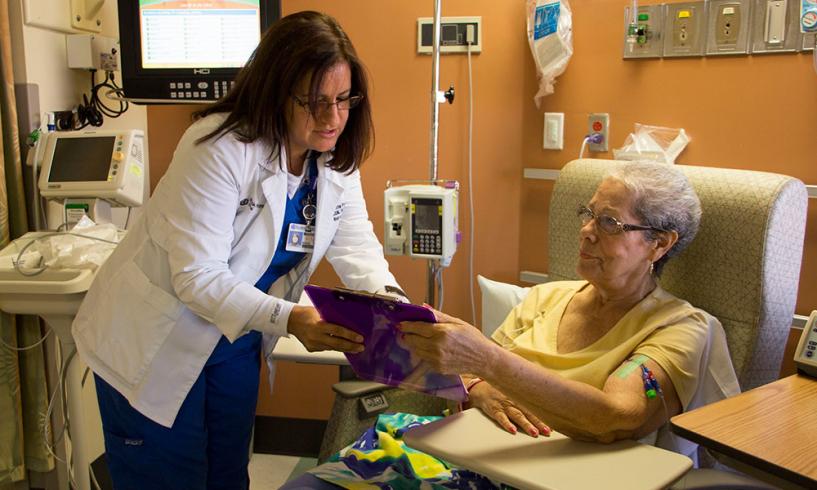Until 2011, no effective therapeutic options existed for advanced thyroid cancer. However, thanks to clinical studies that have improved the understanding of thyroid cancer’s molecular basis, four kinase inhibitors were developed and are now U.S. Food and Drug Administration approved for the disease.
Additionally, two novel kinase inhibitors are currently under investigation for future treatment options. A synopsis of the changing landscape of thyroid cancer treatment was presented at the 2016 American Society of Clinical Oncology annual meeting.
Currently Approved Thyroid Cancer Treatments
Lenvatinib and sorafenib were approved in 2015 and 2013, respectively, for differentiated thyroid cancer, and vandetanib and cabozantinib were approved in 2011 and 2012, respectively, to treat medullary thyroid cancer. All target the vascular endothelial growth factor receptor.
New Treatments Under Study for Thyroid Cancer
Researchers are conducting phase II studies of anlotinib for medullary thyroid cancer and cediranib for differentiated thyroid cancer.
So far, anlotinib has only been studied in Chinese trials. The phase II trial, which was ongoing at the time of Gramza’s presentation, looked at the activity and tolerability of anlotinib in 58 patients with medullary thyroid cancer. The drug was administered as a 12 mg oral dose daily for two weeks on and one week off. The median progression-free survival was not yet reached, but the objective response rate was 48%, which compared similarly with vandetanib (45%) but with less frequent grade 3 or worse side effects (diarrhea and hypertension). Finally, compared with cabozantinib, anlotinib was associated with fewer reports of hand-foot syndrome.
Additional studies are needed, but given the current data, anlotinib may offer similar treatment rates but with more tolerable side effects. However, Gramza noted that the drug may initially only be marketed in China.
A separate, phase II study conducted in the United States looked at cediranib alone or with lenalidomide in patients with differentiated thyroid cancer who are refractory to iodine-131. The researchers found that adding lenalidomide was not beneficial, but cediranib did have an objective response rate (ORR) of 44% and median progression-free survival (PFS) of 14 months (compared to sorafenib’s 12% ORR and 10.8 months PFS and lenvatinib’s 65% ORR and 18.3 PFS).
Genomic Profile of Thyroid Cancer
A final study Gramza discussed involved a comprehensive genomic profile of 90 patient samples of anaplastic thyroid cancer, a rare and aggressive form of the disease that has no effective chemotherapy options and a higher mutational burden than other thyroid cancers. It identified the five most common gene mutations in the disease as TP53, BRAF, CDKN2A, TERT, and NRAS, paving the way for future treatment developments to target those mutations.






